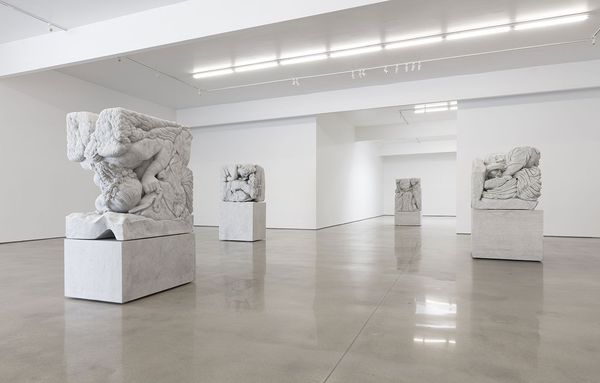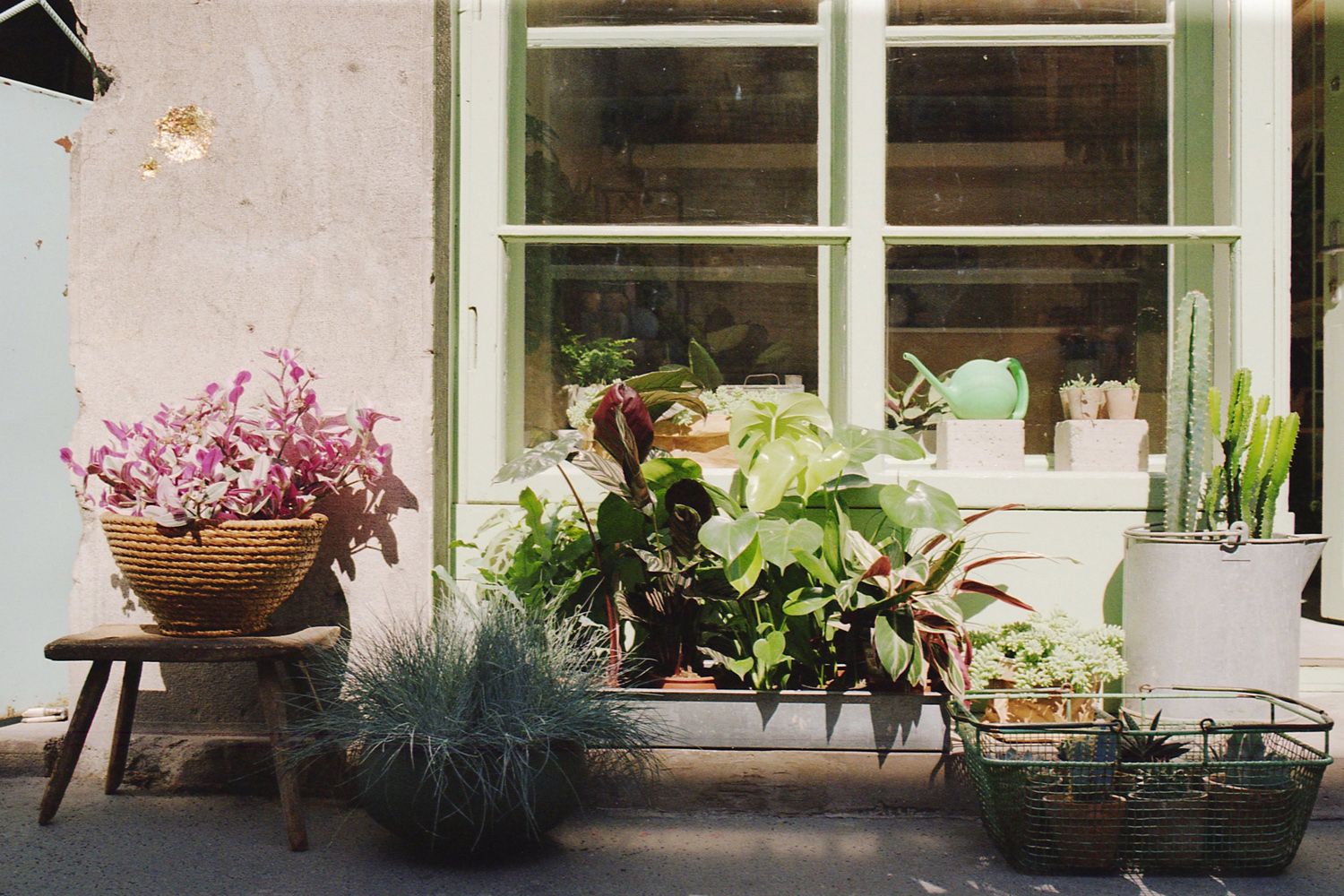Hairy, spider leg-like fern hanging from the ceiling, fishtail palm and other special plants in the company of old glassware, pots and contemporary objects: we visited the Pilea Project shop in Víg Street, which hides exciting details. Interview.
The streets around the Rákóczi Square Market Hall in Budapest are home to an increasing number of unique initiatives, including a new wave bakery, a risograph printing shop, a designer shop, a jewelry workshop and a project gallery. This vibrant creative community is also home to the Pilea Project houseplant and home accessories shop, created by metalwork designer Anna Eszter Balázs and industrial designer Borbála Szabó Eszter.

The two founders met during their studies at the Moholy-Nagy University of Art and Design. As they explained, the Pilea Project space is in fact a convergence of their shared interests: their passion for objects and plants is an integral part of this. “We are very fond of objects and we like to think about them: if we see one in the street, in someone’s home, or even in our own home, we always discuss why we like it or what we don’t like about it, or what would we change about it. Talking things out is a bonding force between us, so we enjoy it greatly,” Eszter Szabó shared. It soon became clear that both of them are passionate about old objects, so they were excited to visit different fairs and flea markets together to recycle and to give new life to the objects they found there. “When I come across something at a dump day and clean it up, or maybe put it in a more modern object group, it’s completely changed and gets a new color: that’s a great feeling,” the designer added.
Finally, they decided that it would be worthwhile to turn this kind of joy and enthusiasm into a joint venture, which they hope will better help people to make their homes cozier. Houseplants are also an important element of this, and as the name of the Pilea Project suggests, they are now central to the repertoire. “It’s a great feeling to watch a plant grow and see every day how a shoot gets bigger and bigger, or how a leaf sprouts,” says Eszter Szabó.


As her co-founder, Eszter Balázs added, she grew up in a family of ornamental gardeners and was the third generation to be introduced to the world of plants, so being close to nature has been important to her since childhood. “Moving to the capital, we tried to bring back this feeling,” she highlighted.
The Víg Street premises of the Pilea Project were discovered during one of the Budapest100 programs (a spring weekend celebration of the people and buildings of Budapest). As they said, the space has changed a lot since then, but they wanted to keep its original character. So their love of recycling and old objects is reflected in the concept of the space, where a balance between old and new elements creates the atmosphere.
In this familiar environment, there are carefully and individually selected ferns, pileas, philodendrons or palms, which are sourced from Hungarian garden centers. In addition to quality, they also strive for variety, so you can choose from small, large, light- and shade-loving or even climbing plants. In the future, if someone wants to get rid of a houseplant because it has outgrown their home, Pilea will also serve as a collection point. “Also this way we want to keep the cycle going and connect with people, but it’s important that we can’t sell plants in any condition, so we still need to develop a system for that,” they note.
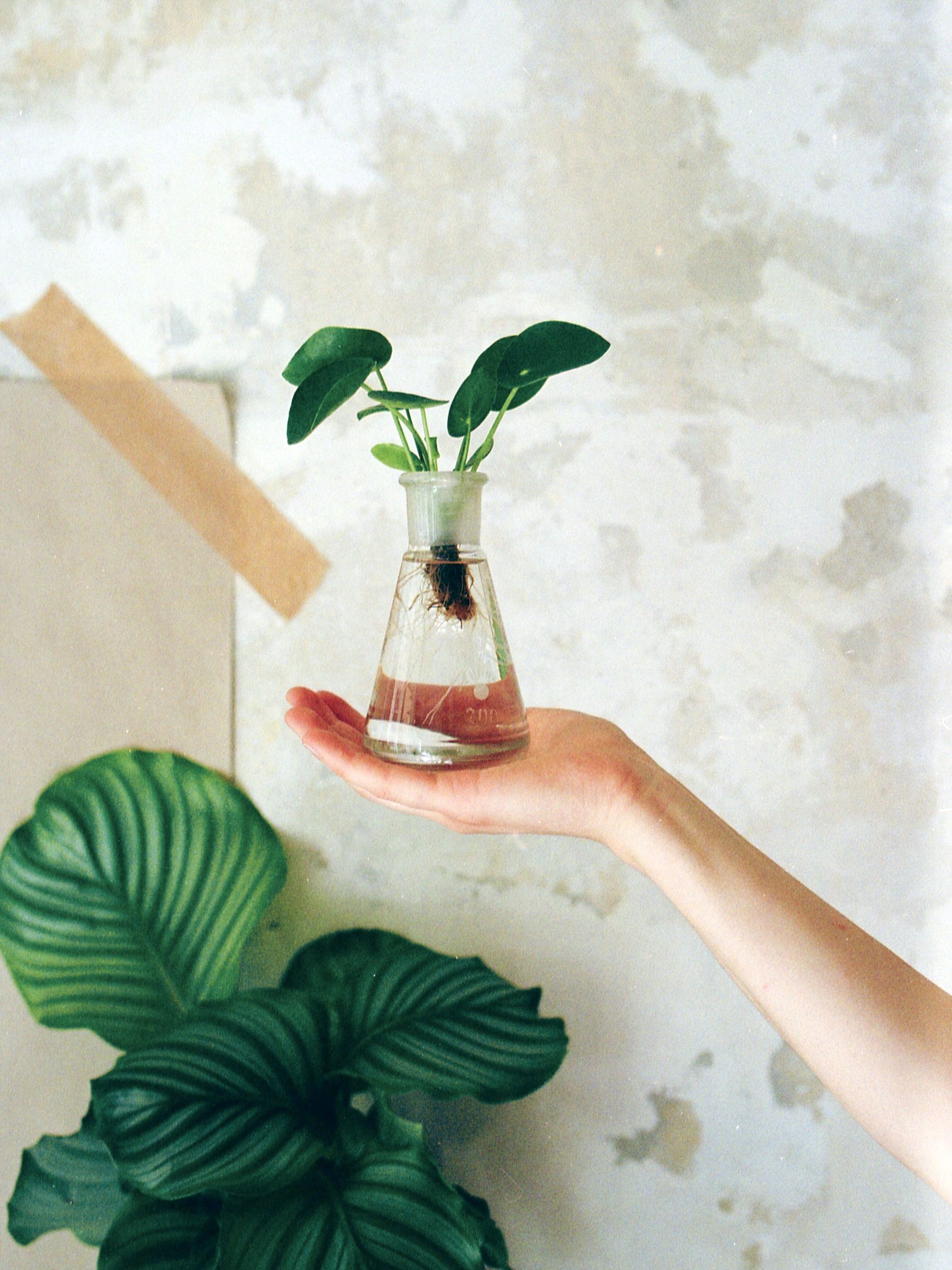
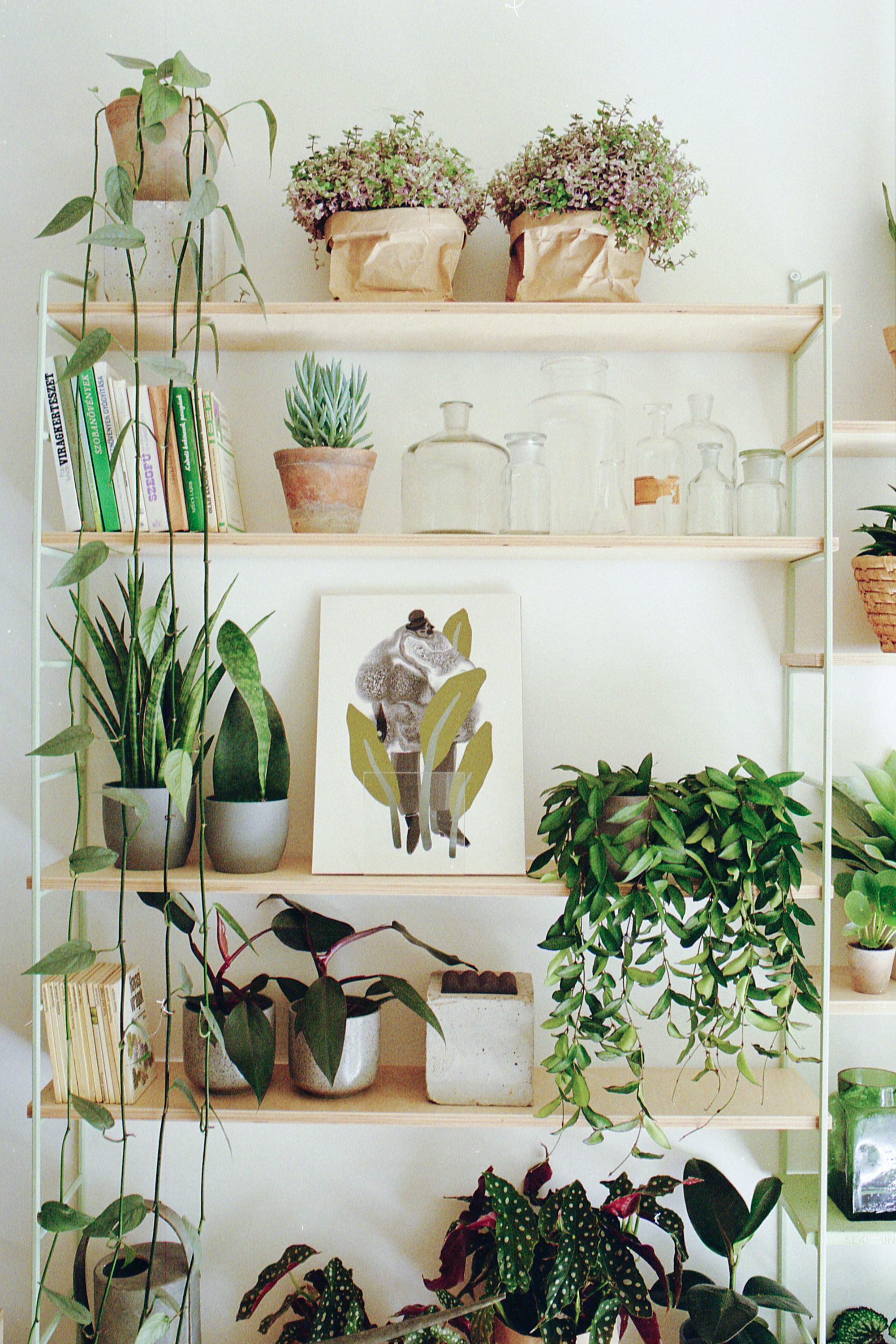
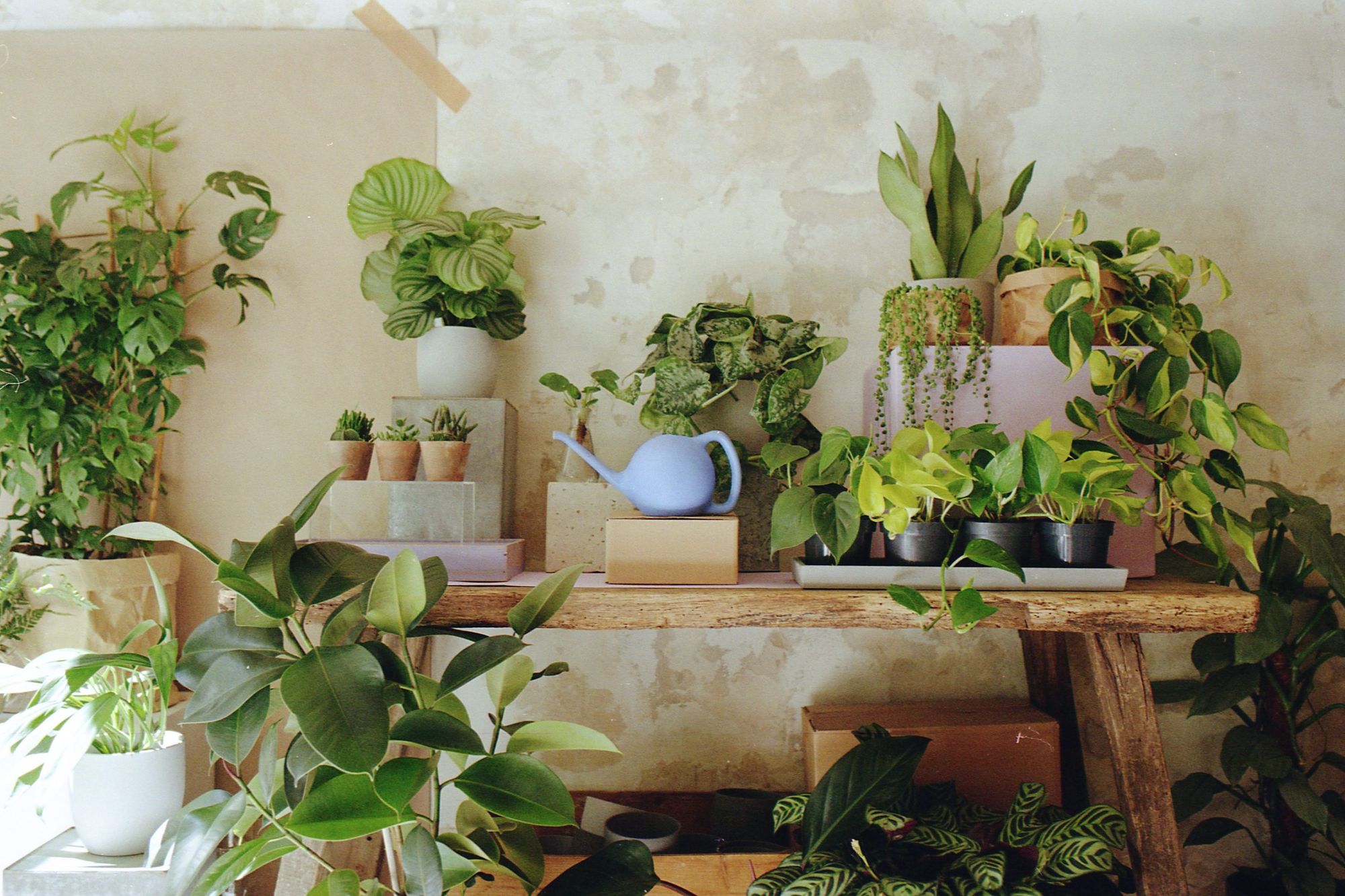
In addition to plants, you can also find a variety of old furniture or recycled objects, such as old stools, small glass bottles or rattan baskets—which can be used as plant accessories. “If the object allows, it is exciting to see what new functions it can be given,” they added. They also plan to expand the range of items with books on houseplants and home decor, as well as products by Hungarian designers. Thus, the repertoire includes illustrations by Barbara Beke (Barbara Pattern), recycled wood picture frames by Sebō Wood, ceramics by Debora Horak and seeds from the Virágos Pagony.





Although they love their oasis on Víg Street, they explained that in the future, they could imagine a larger space for their joint business, which would still include plants as an integral part, but could also focus more on their own designs.
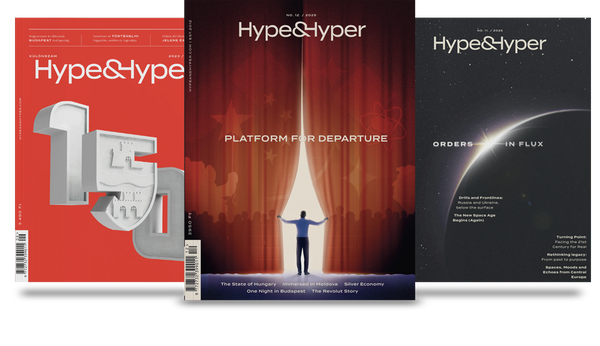
Issue No. 12.
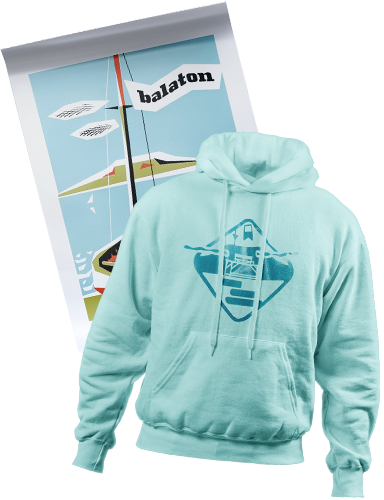
GET THE LATEST ITEMS FROM OUR STORE
